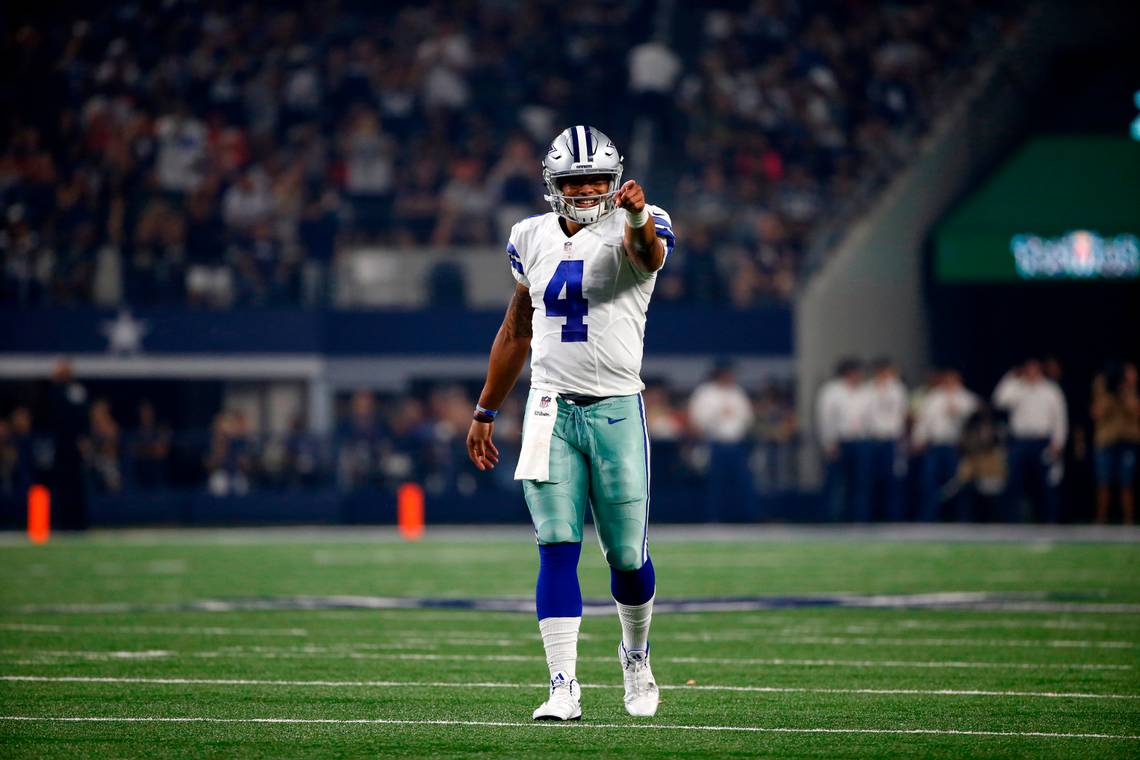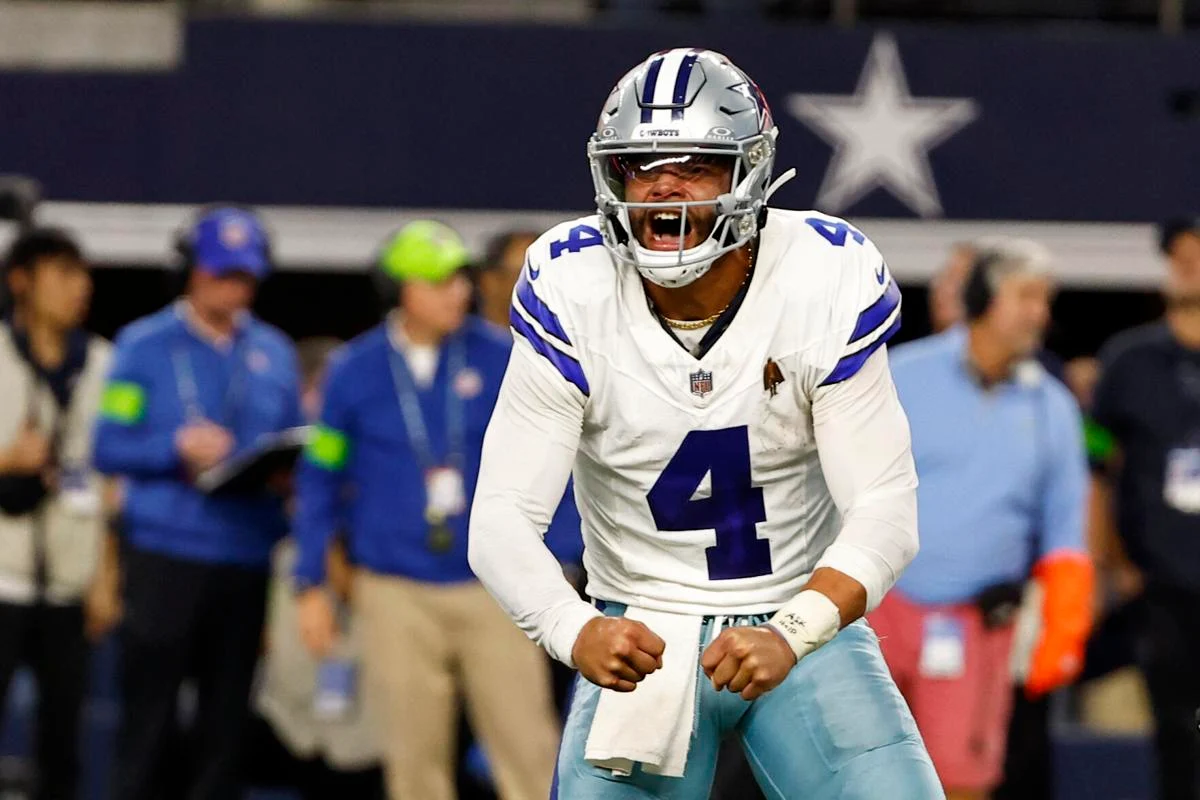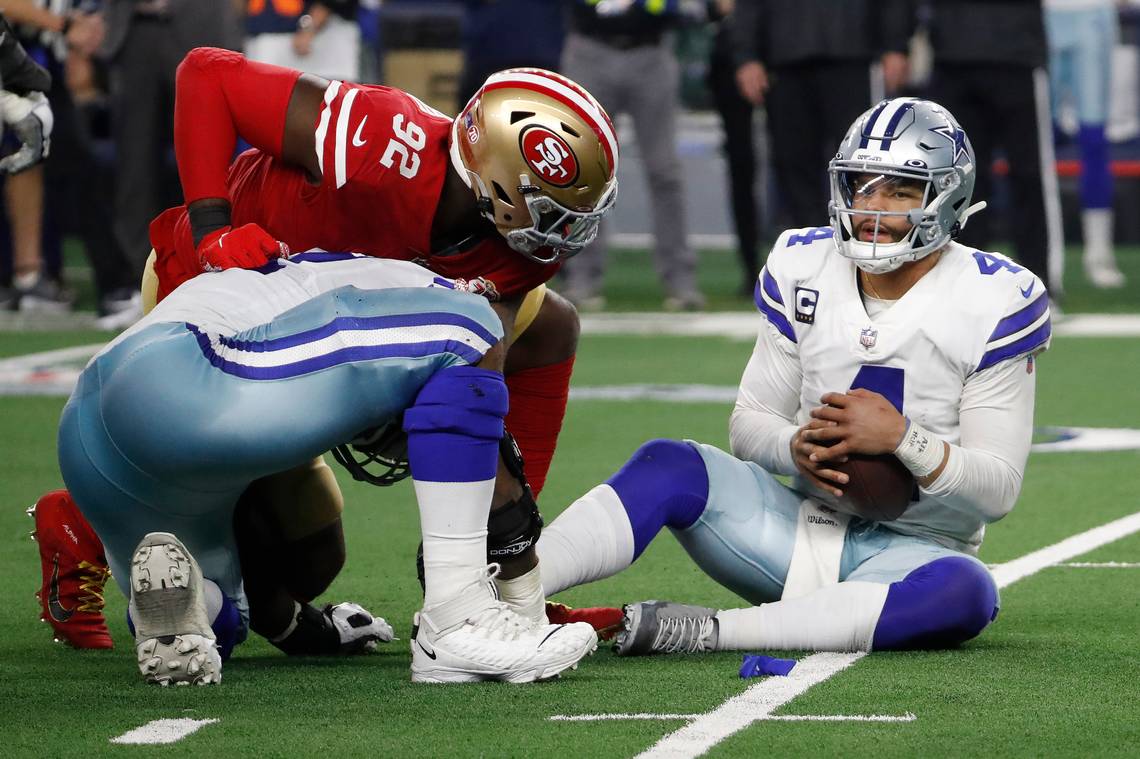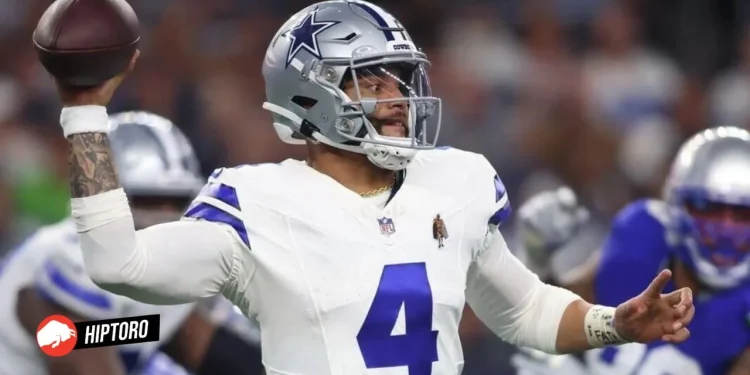In the heart of NFL mania, where the spotlight never dims, the Dallas Cowboys find themselves perennially under the microscope, dubbed America’s Team. The scrutiny is relentless, dissecting every play, decision, and rumor, aiming to unravel the essence of the team’s culture. Amidst this whirlwind of critique and analysis, Dak Prescott, the Cowboys’ steadfast quarterback, recently took a firm stand in defense of his team.

Dak Prescott’s Unwavering Support For Dallas Cowboys
For eight seasons, Dak Prescott has been at the helm of the Cowboys, navigating through the highs and lows with a grace that belies the pressure of his position. It’s this experience that gives weight to his words, especially when he addresses the culture of the team he leads.
At a charity event, Prescott’s response to inquiries about the Cowboys’ culture was not just a defense but a proclamation of pride. “The culture is great from my standpoint,” he asserted, “My point is that’s something I’ve bragged on and took pride in. So if there’s questions of that or concerns on that, I feel attacked.”
Such a strong endorsement from a leader of Prescott’s caliber is telling. It highlights not just a personal belief in the ethos and environment fostered by the team but also a challenge to the narrative that often surrounds the Cowboys. This narrative, fueled by a mix of envy and skepticism, has painted the team’s regular-season success as insufficient, overshadowing their achievements with a focus on playoff shortcomings.

Dallas Cowboys’ Inequitable Standards of Success
The Cowboys’ journey has been one of undeniable success mixed with poignant moments of disappointment. Despite a consistent performance that saw them clinching a 12-5 record over three consecutive seasons, the team’s limited playoff victories have become a focal point for critics.
Figures like Stephen A. Smith have found joy in emphasizing these moments, casting a shadow over Prescott’s individual successes, including a second-place finish in the MVP voting.
The scrutiny begs the question of whether the criticism is about more than just football. When similar patterns of regular-season excellence followed by playoff heartbreak are observed in teams like the Buffalo Bills, the narrative seems less fixated on “culture” as a cause for failure. This discrepancy in treatment underscores a broader conversation about the criteria used to evaluate team success in the NFL.
The Dallas Cowboys can win a Super Bowl with Dak Prescott at QB. He was an MVP Candidate for most of last season. Dak isn’t the issue. The Culture that Jerry Jones has created is. The first step to fixing the issue is acknowledging that there is a problem. pic.twitter.com/4EJlORipZt
— Robert Griffin III (@RGIII) March 5, 2024
The Dichotomy of Perception and Reality
The NFL, a league where victory is the ultimate currency, often oversimplifies the complex interplay of factors that contribute to a team’s success or failure. The case of the Cowboys versus teams like the Green Bay Packers, who have triumphed over Dallas in critical moments, raises questions about the true essence of “culture” and its impact on outcomes. Is it a tangible quality that can be shifted or improved, or is it a convenient scapegoat for moments of defeat?
Jerry Jones, the Cowboys’ owner, finds himself in the eye of this storm, balancing between conviction and criticism. His decision to stand by coach Mike McCarthy, much like the Steelers’ loyalty to Mike Tomlin, reflects a belief in continuity and stability over reactionary changes. Yet, this stance is often interpreted through contrasting lenses, revealing the subjective nature of “culture” as a concept within sports.

The Road Ahead for Dak Prescott and the Dallas Cowboys
As the narrative unfolds, the future of the Cowboys, and the legacy of Dak Prescott within it, hangs in a delicate balance. Prescott’s defense of the team’s culture is not just about the present but sets the stage for a future where success is the ultimate arbitrator of perception. With the potential to shift narratives and redefine the team’s legacy, the pressure is immense, but so is the opportunity.
The culture controversy surrounding the Dallas Cowboys serves as a microcosm of the broader dynamics at play in the NFL. It highlights the intricate dance between perception and performance, where success is both a shield and a sword.
As Prescott and his team face another season, the quest for the promised land continues, carrying the weight of expectations and the hope of vindication. In the end, it’s not just about defending a culture but defining it through the crucible of competition.

Source: Dallas Cowboys









